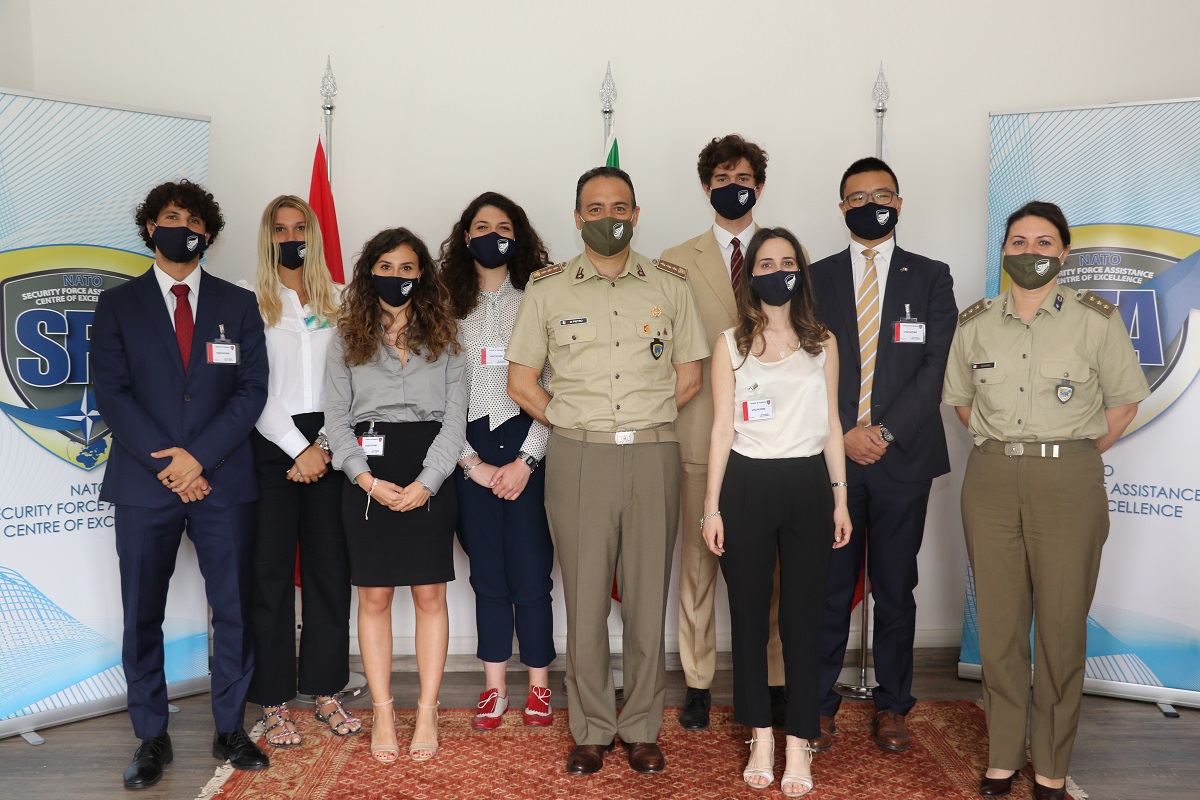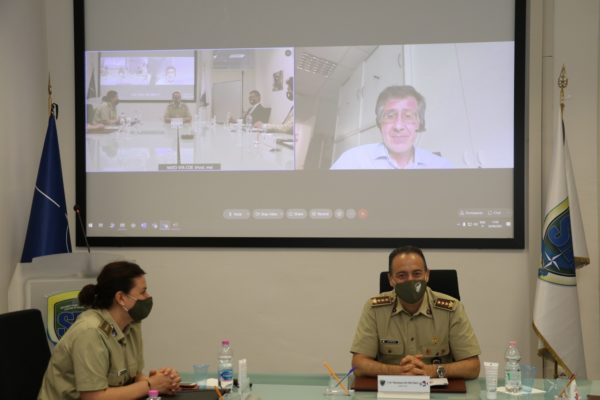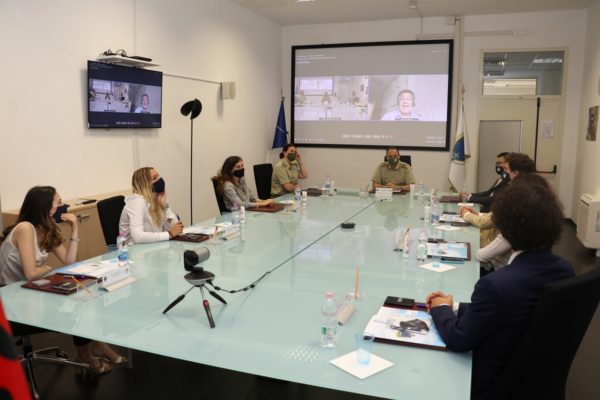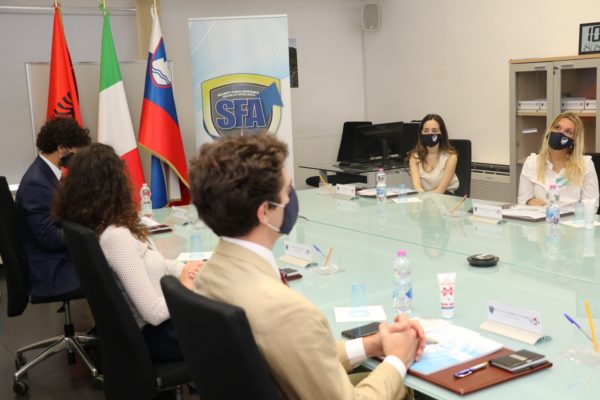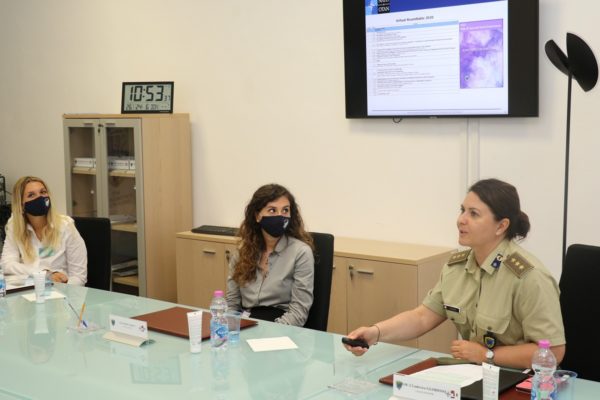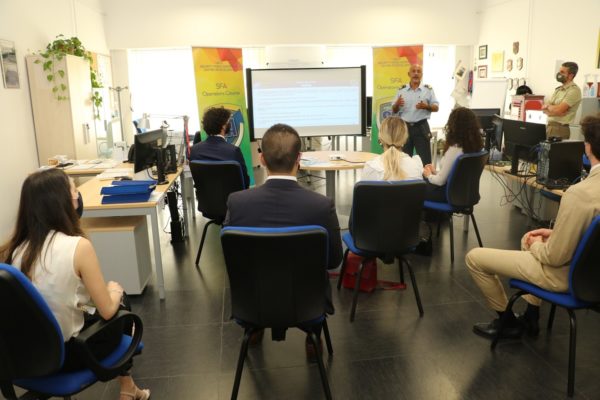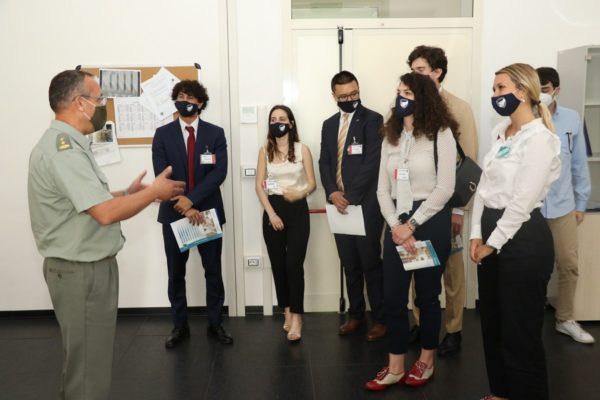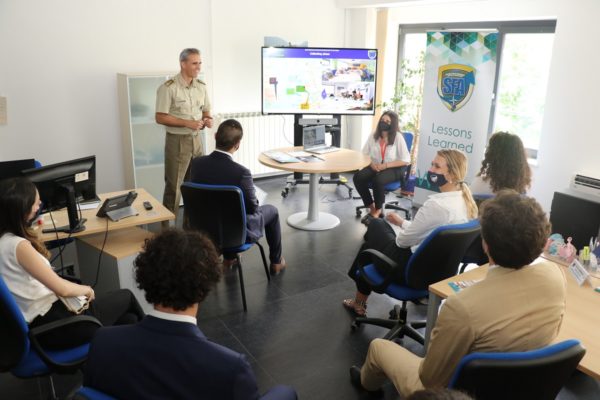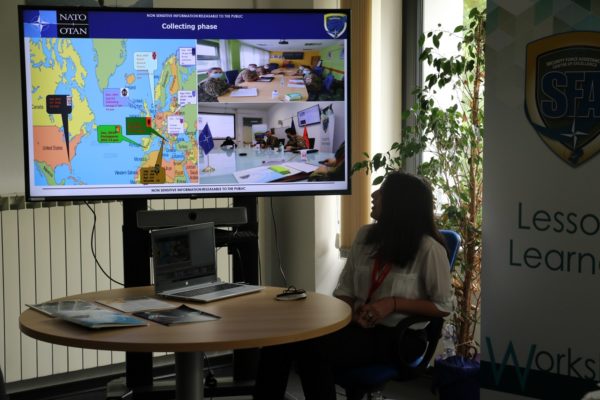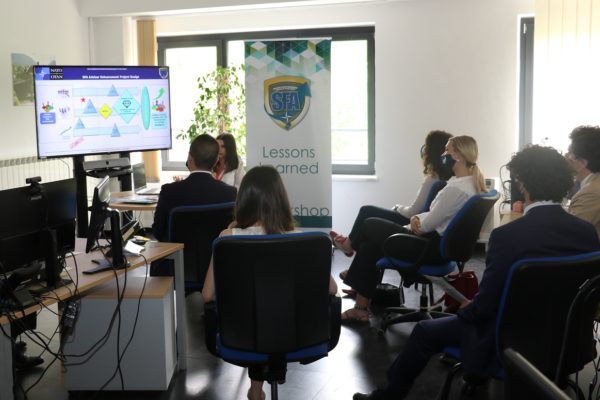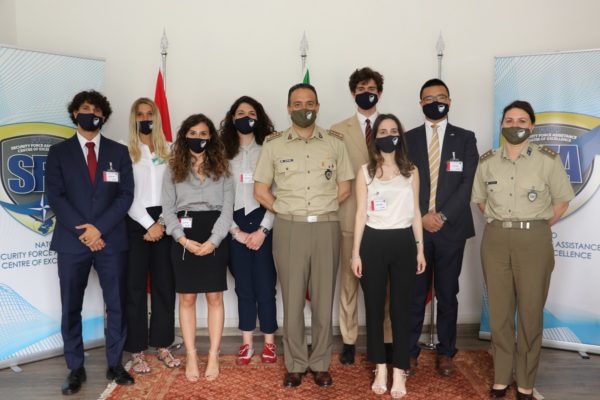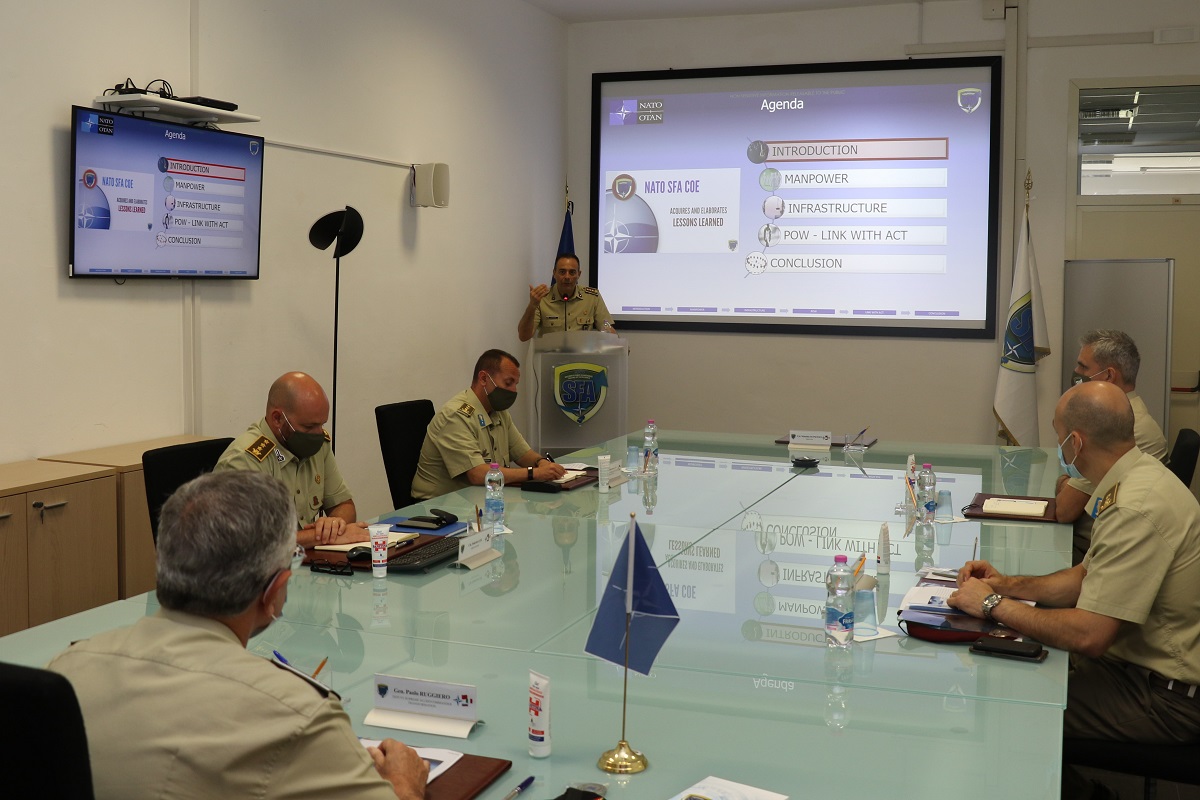On the 24th of June 2021, a delegation from the Political Sciences Association (Associazione Scienze Politiche – ASP) from the LUISS Guido Carli University visited the NATO Security Force Assistance Centre of Excellence (NATO SFA COE), as part of the cooperation between the two entities that started in January 2020.
The ASP is the oldest Luiss students’ Association, that aims to offer its students cultural events with authoritative institutional figures; projects in collaboration with the Italian Geopolitical Magazine “Limes” and the United Nations and, finally, simulations of the Italian, European and the NATO Legislative processes (in collaboration with the Italian Chamber of Deputies, the High Patronage of the European Parliament and the Italian Ministry of Defence). In particular, the next simulation is about the North Atlantic Council’s decisional process that will be organized between LUISS and the NATO Defence College.
During the visit the Director, Col Massimo Di Pietro, introduced the history, the activities and the relevance of the Security Force Assistance for NATO missions and operations while facing current complex international scenarios.
The NATO SFA COE adopts a comprehensive approach in developing its projects and related activities. Among the latter, the Legal Advisor of the Centre presented the current editorial project. It analyses the legal and political framework in crisis areas from an interdisciplinary perspective, as well as identifying programs of important international agencies and organizations for the promotion of international humanitarian law and human rights in the context of training activities for local forces.
The LUISS Interns assisted in the editing process of the document. This publication is particularly relevant in the framework of Political Science, not only for the International Organizations involved (i.e., NATO, United Nations, International Red Cross Committee etc.), but also in order to provide a multi-disciplinary approach in defining the methods of interaction between the SFA and the factors facilitating stabilization and consolidation of institutions in crisis areas.
Finally, LUISS students had the opportunity to meet the various Department heads of the Centre, who illustrated those other initiatives in the training and research in the SFA field where more opportunities for further internship programs can be initiated.
Collaboration between the NATO SFA COE and Academia is an essential part of the Centre’s work, as highlighted by several events conducted with universities during the last months. It represents an important enrichment, especially for students, who have the opportunity to better understand the roles and tasks of this COE in developing concrete solutions to improve the effectiveness of the Alliance in the SFA field.








